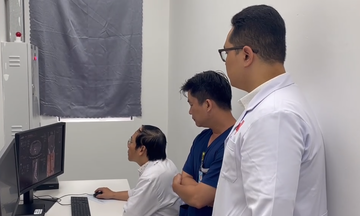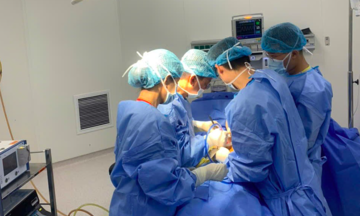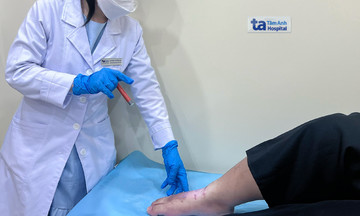Cancer is a leading cause of death worldwide, with cases projected to rise sharply in the coming decades. While genetics and environment play a role, experts emphasize that everyday lifestyle choices can significantly impact your risk.
According to Dr. Saurabh Sethi, a Harvard and AIIMS-trained gastroenterologist, adopting simple daily habits can lessen the likelihood of developing the disease. From cutting back on ultra-processed foods to prioritizing sleep and stress management, these research-backed strategies highlight how small, consistent changes in diet and lifestyle can have a big payoff in protecting long-term health. These changes include:
Cut down on ultra-processed foods.
Ultra-processed foods, such as packaged snacks, sugary drinks, instant noodles, and fast food, are often loaded with refined sugars, unhealthy fats, and additives. A 2024 study published in *The BMJ* found that those with high ultra-processed food intake had a 20-30% increased risk of cancer. These foods contribute to chronic inflammation, obesity, and metabolic dysfunction—all linked to cancer development. Replacing them with whole, minimally processed foods like fruits, vegetables, legumes, and whole grains is a practical way to safeguard long-term health.
Increase fiber intake.
Dietary fiber not only aids digestion but also plays a protective role against certain cancers, especially colorectal cancer. According to the American Institute for Cancer Research (AICR), every 10g of additional fiber consumed daily reduces the risk of colorectal cancer by approximately 10%. Fiber-rich foods like beans, oats, berries, nuts, and leafy greens improve gut health and regulate bowel movements, reducing the time potential carcinogens are exposed to the intestinal lining.
Limit processed meat.
Processed meats like bacon, sausage, and deli meats are classified as Group 1 carcinogens by the WHO, meaning there is strong evidence they can cause cancer in humans. A large analysis of studies found that eating just 50g of processed meat daily—equivalent to two slices of bacon—increases the risk of colorectal cancer by 18%. While the evidence linking red meat to cancer is less conclusive, moderate consumption is still recommended. Opting for lean protein sources like fish, poultry, lentils, and tofu can be a healthier alternative.
Choose healthy oils.
The type of fat you consume matters. Research has shown that the Mediterranean diet—rich in olive oil, nuts, vegetables, and whole grains—is associated with up to a 30% reduction in overall cancer risk. Olive oil, in particular, contains monounsaturated fats and antioxidants that can help reduce oxidative stress and inflammation, two processes closely linked to cancer. Using olive oil or other plant-based oils instead of refined vegetable oils and trans fats is a small but impactful change.
 |
Regular physical activity helps reduce the risk of colon, breast, and endometrial cancers by 20-40%. Photo: *Nguyen Dong* |
Control alcohol intake.
Alcohol is a preventable cancer risk factor. Dr. Sethi points out that alcohol consumption has been linked to seven different types of cancer, including breast, liver, and colorectal cancers. Even small amounts can be harmful: The US National Institutes of Health (NIH) reports that consuming just one alcoholic beverage per day increases the risk of breast cancer by 7-10%. If you do drink, keep it moderate and occasional. For many, the healthiest choice is to avoid alcohol altogether.
Maintain a healthy weight.
Obesity is a significant driver of cancer risk. According to the US Centers for Disease Control and Prevention (CDC), obesity is linked to at least 13 different cancers, accounting for 40% of all diagnoses in the US. Excess body fat increases inflammation, alters hormone levels, and disrupts insulin regulation, all of which can contribute to cancer development. Therefore, maintaining a healthy weight through balanced eating and regular activity is crucial for long-term health.
Stay physically active.
Data from the US National Cancer Institute (NCI) indicates that regular physical activity helps reduce the risk of colon, breast, and endometrial cancers by 20-40%. Exercise helps regulate hormones, reduce inflammation, boost immunity, and improve weight control—all factors that lower cancer risk. Aim for at least 150 minutes of moderate-intensity or 75 minutes of vigorous-intensity exercise each week, whether it's brisk walking, cycling, yoga, or swimming.
Prioritize sleep and stress management.
Often overlooked, sleep and stress play important roles in cancer prevention. Chronic stress weakens the immune system and can promote tumor growth, while insufficient sleep impairs the body's ability to repair and defend itself. Dr. Sethi highlighted research showing that sleeping less than six hours per night is associated with a 24% higher risk of cancer mortality. Establishing a consistent sleep schedule, practicing relaxation techniques like meditation, and limiting screen time before bed can help protect overall health.
Regular health screenings, staying informed about personal risk factors, and seeking timely medical advice will enhance the effectiveness of these preventive measures. Prevention doesn't happen overnight. But consistent, conscious choices made today can have a big payoff in protecting your health for years to come.
My Y (*Times of India*)












